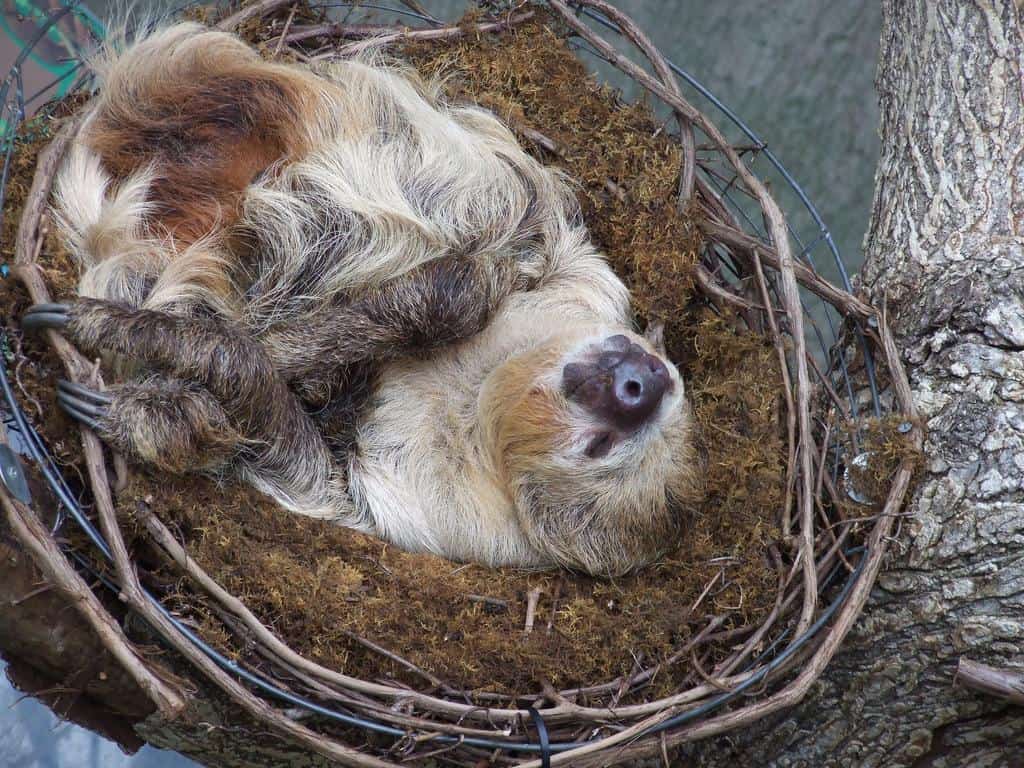The exotic pet trade is significantly increasing in the United States thanks to the popularity of showcasing them on social media apps. The international wildlife trade in the United States is a multi-billion dollar industry. And while this sounds like good news for those interested in owning exotic pets, you may unknowingly be contributing to disease spreading and the extinction of specific species.
With that said, you may still wonder: “Can you own a monkey in Texas?” Find out the surprising answer and discover other exotic pets in the state.
Is it Legal to Own a Monkey in Texas?
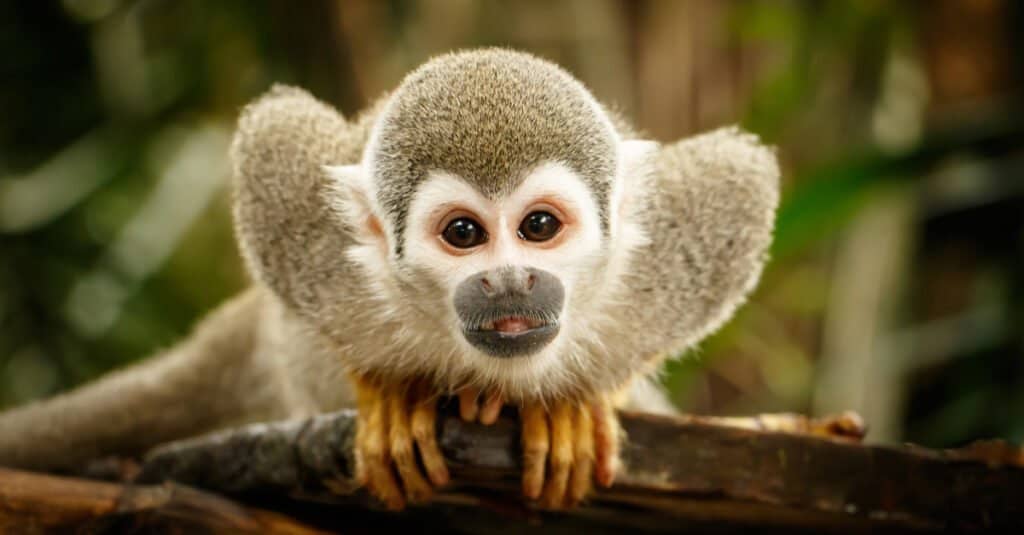
It is entirely legal to own a monkey in Texas.
©Ludmila Ruzickova/Shutterstock.com
You can legally own a monkey in Texas. Texans also don’t need an exotic pet license to buy a monkey, making ownership extremely easy in the Lone Star state. This blanketing somewhat extends to other primates, including lemurs, which can also be legal pets. Only dangerous animals in Texas require oversight or may be prohibited.
Owning exotic pets in America is nothing new. The non-native pet trade began in the country during the 15th century but grew in popularity after the Second World War. No fundamental laws governed the mass importation of exotics, and from 1950 through the 1970s, Americans took full advantage of this.
It wasn’t until 1975, when the Center for Disease Control placed bans on introducing specific species, that it became somewhat difficult to own an exotic pet. The federal agency specifically targeted primates and concluded that they were likely to spread infectious diseases. Unfortunately, this did not stop the illegal trading of primates and other exotics. And today, the practice is still alive and well.
Many states in the US have slipshod laws regarding the sale and ownership of monkeys, and Texas is one of them. The question of whether you can own a monkey in Texas is more of an ethical one than legal, for now.
What Pet Monkeys Are Legal in Texas?
While owning monkeys in Texas may be legal, this legality and ease of ownership do not extend to all primate family members. For instance, apes like gorillas and chimpanzees are much more difficult to own in the state, requiring licensing and specific care.
How Much is a Monkey in Texas?
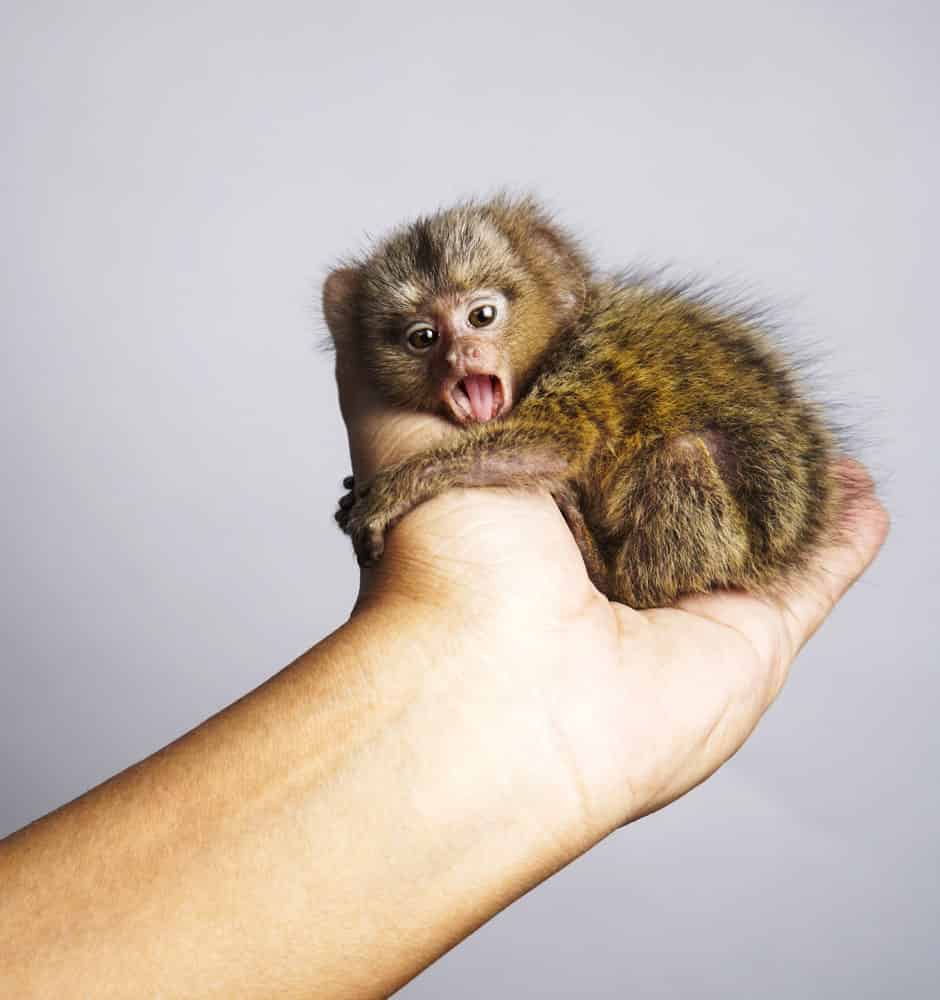
Pet monkeys cost between $4,000 and $20,000.
©anythings/Shutterstock.com
Pet monkeys can cost anywhere between $4,000 and $20,000. Many factors go into the cost of ownership, including its age, temperament, and rarity. Young playful monkeys cost much more than older ones more set in their ways.
Many more costs are associated with owning a monkey, including cages, training, habitat items, food, veterinary care, and diapers. Most monkeys are never fully house broken and require diapering throughout their life, which can be anywhere from 15 to 45 years, depending on the breed. It’s essential to consider the financial burden and lifetime commitment raising and caring for a monkey requires. Primates are more expensive and live much longer than dogs and cats.
What Exotic Pets Are Legal in Texas?
Here are some other exotic pets you can legally own in Texas.
Lemurs
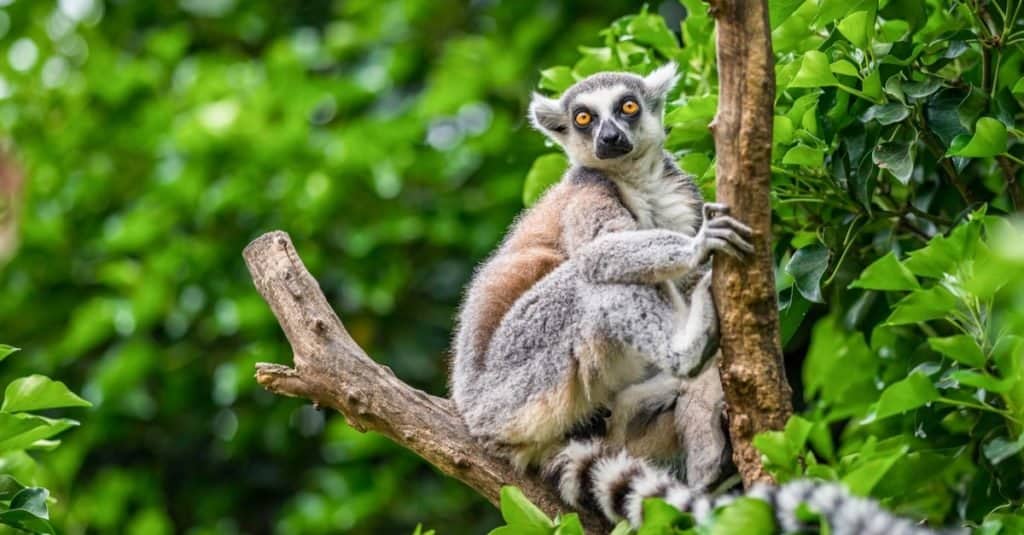
Lemurs can’t be sold across state lines.
©Ondrej_Novotny_92/Shutterstock.com
The lemur is in the primate family but evolved independently from monkeys and apes. This species is endemic to Madagascar and lives mainly in trees, where it’s active at night. Even though they are illegal in most states, you can own one in Texas without issue. Of all the primates, the lemur is considered one of the least demanding. While they are relatively easy to keep happy, they require you to structure your life around their needs. This species can’t be sold across state lines.
Bushbabies
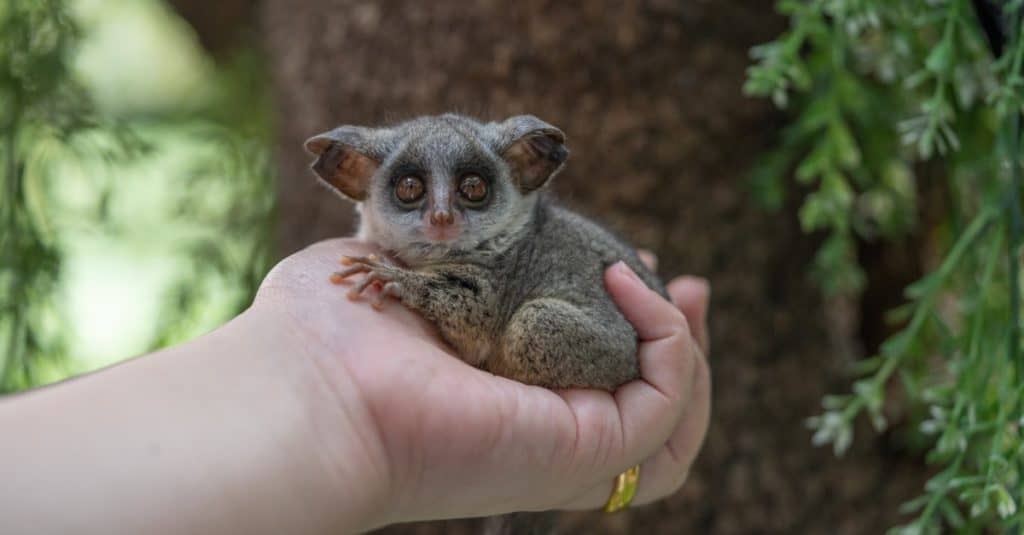
The bush baby can live up to 16 years in captivity.
©akegooseberry/Shutterstock.com
Bushbabies, also known as galagos, are small primates native to Sub-Sahara Africa. However, only the more prominent, bushy-tailed species (Greater Galago) is available in the United States. It can weigh over three pounds and grow up to 12 inches in length.Bushbabies are nocturnal, need lots of room to play, and tend to rub themselves in urine. These animals live up to 16 years in captivity.
Sloths
The sloth is closely related to anteaters and native to tropical rainforests in Central and South America. You may remember these slow-moving creatures from viral videos depicting their adorable, loving nature. But, these creatures don’t like to be held or fussed over. Their heart rates increase, and they can become visually distressed when people touch them. Sloths are a significant purchase and commitment. They can live up to 30 years in captivity, and prices for babies start around $6000.
Capybaras
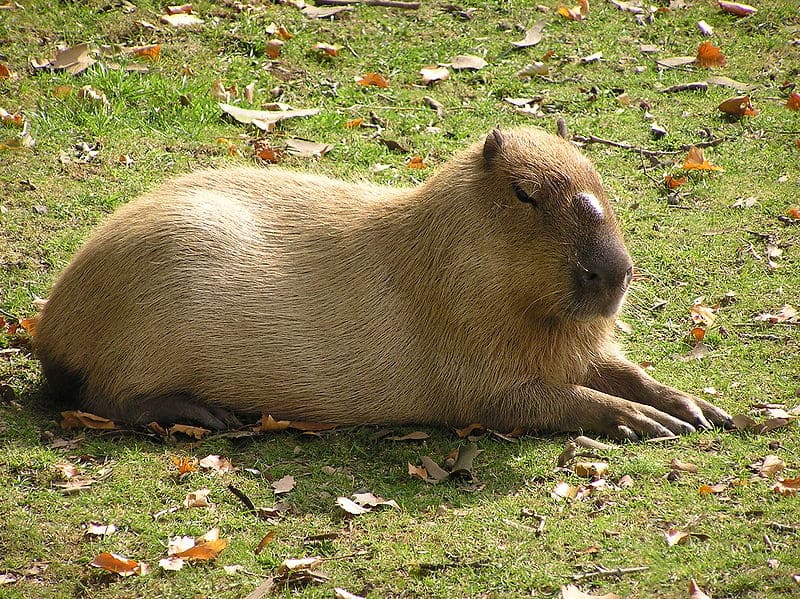
Capybara is a close relative of the guinea pig.
The capybara is the largest living rodent on earth and is native to South America. It’s a close relative to guinea pigs and lives in savannahs and forests near water sources. They are highly social creatures, often living in groups of 100 or more. On average, they weigh between 77 and 154 pounds and can live up to ten years in captivity. If you live in Texas, you may see these dog-sized rodents walking on leashes next to their owners.
Kangaroos
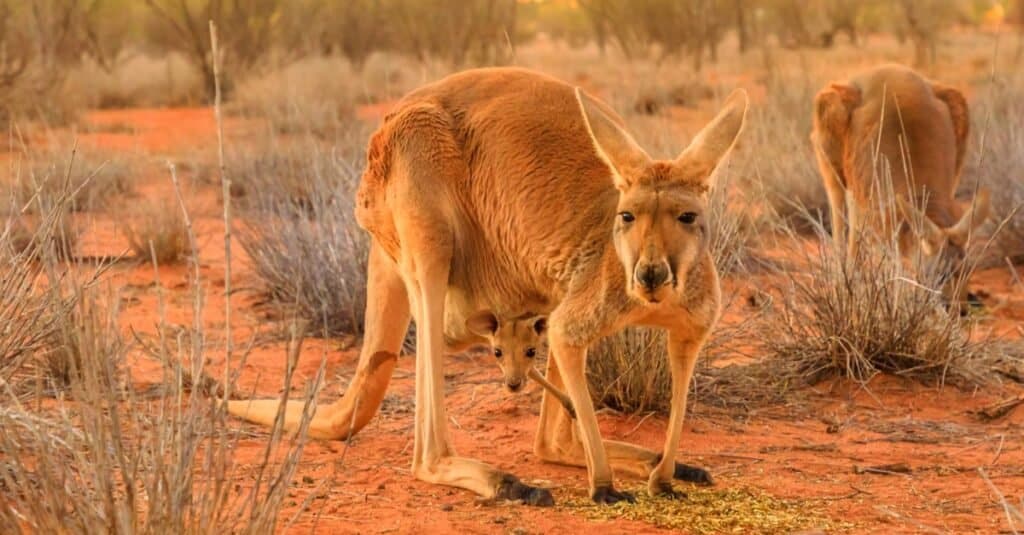
Kangaroos need large grassy areas to jump around.
©Benny Marty/Shutterstock.com
The kangaroo is a marsupial indigenous to Australia and New Guinea. It may be legal to own this species in Texas, but kangaroos can be aggressive and wary towards people. They require large fenced-in grassy areas with plenty of room to jump around. They do better when in the presence of other kangaroos and do not like household pets. For those who own pet kangaroos, extensive planning is necessary to aid in the care of these creatures.
Exotic pets in Texas That Are Prohibited or Require a License
Any animal deemed dangerous to humans is prohibited or requires special licensing to own in Texas. They are as follows:
- Chimpanzees
- Gorillas
- Cheetahs
- Orangutans
- Ocelots
- Jackals
- Bears
- Tigers
- Cougars
- Lions
- Lynx
- Baboons
- Leopards
- Jaguars
- Coyotes
- Bobcats
- Hybrids
Up Next:
- Monkey Lifespan: How Long Do Monkeys Live?
- The World’s 10 Largest Monkeys
- The 5 Ugliest Monkeys in the World
The photo featured at the top of this post is © Ondrej Prosicky/Shutterstock.com
Thank you for reading! Have some feedback for us? Contact the AZ Animals editorial team.



